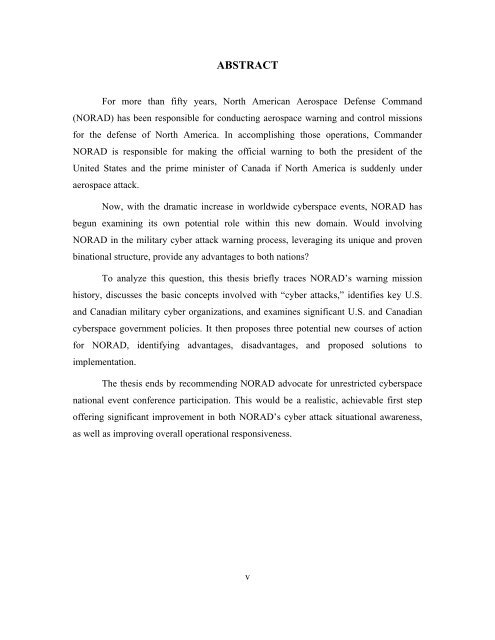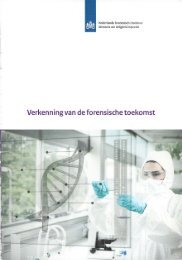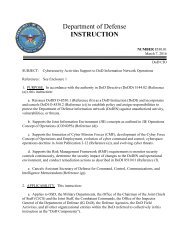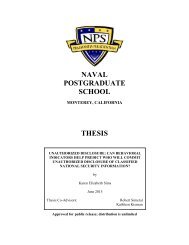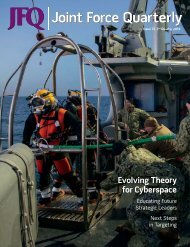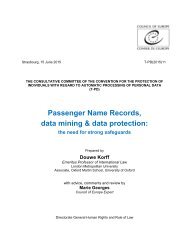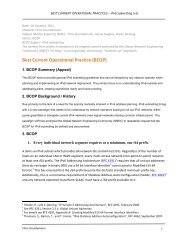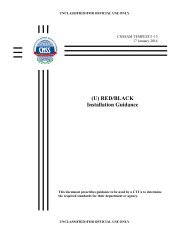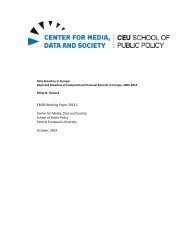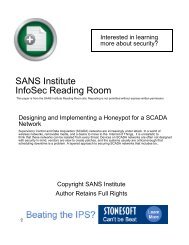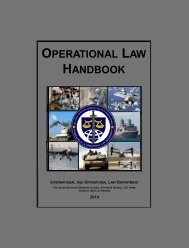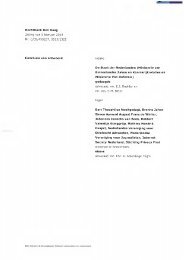SCHOOL THESIS
?view&did=788526
?view&did=788526
You also want an ePaper? Increase the reach of your titles
YUMPU automatically turns print PDFs into web optimized ePapers that Google loves.
ABSTRACT<br />
For more than fifty years, North American Aerospace Defense Command<br />
(NORAD) has been responsible for conducting aerospace warning and control missions<br />
for the defense of North America. In accomplishing those operations, Commander<br />
NORAD is responsible for making the official warning to both the president of the<br />
United States and the prime minister of Canada if North America is suddenly under<br />
aerospace attack.<br />
Now, with the dramatic increase in worldwide cyberspace events, NORAD has<br />
begun examining its own potential role within this new domain. Would involving<br />
NORAD in the military cyber attack warning process, leveraging its unique and proven<br />
binational structure, provide any advantages to both nations?<br />
To analyze this question, this thesis briefly traces NORAD’s warning mission<br />
history, discusses the basic concepts involved with “cyber attacks,” identifies key U.S.<br />
and Canadian military cyber organizations, and examines significant U.S. and Canadian<br />
cyberspace government policies. It then proposes three potential new courses of action<br />
for NORAD, identifying advantages, disadvantages, and proposed solutions to<br />
implementation.<br />
The thesis ends by recommending NORAD advocate for unrestricted cyberspace<br />
national event conference participation. This would be a realistic, achievable first step<br />
offering significant improvement in both NORAD’s cyber attack situational awareness,<br />
as well as improving overall operational responsiveness.<br />
v


